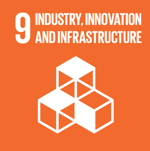
New Uzbekistan National SDGs: Milestones and Perspectives
UNDP in Uzbekistan, the World Bank in Uzbekistan,
Westminster International University in Tashkent (WIUT)
and University of World Economy and Diplomacy (UWED)
Introduction
In September 2015, Uzbekistan along with other countries of the world, declared its commitment to implement the 2030 Agenda for Sustainable Development to ensure inclusive and sustained economic growth, social inclusion and environmental protection, as well as contribute to ensuring peace and security in the world. To support this, the Government of Uzbekistan adopted Resolution of the Cabinet of Ministers of the Republic of Uzbekistan No. 841 of October 20, 2018: "On measures to implement the National goals and objectives in the field of sustainable development for the period until 2030". The Sustainable Development Goals (SDGs) aim to end poverty and hunger, reduce inequalities within and between countries, ensure healthy lifestyle, equitable quality education and lifelong learning opportunities for all, gender equality, promote sustained and inclusive economic growth, full and productive employment for all, ensure access to housing and widespread adoption of the "green economy", ensure environmental sustainability and other critical areas related to improving the quality of life of people.
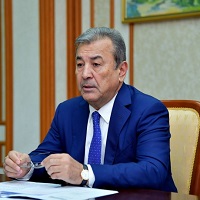

Matilda Dimovska assumed the role of UNDP Resident Representative in Uzbekistan in March 2019. Prior to this, she led the Country Office Support Team at UNDP Istanbul Regional Hub for Europe and the CIS as of July 2016 and has since supported Country and Project Management Offices in the region. Prior to that she served as Deputy Resident Representative of UNDP in Turkey (2012-2016), Deputy Resident Representative of UNDP in Moldova (2008-2012) and Assistant Resident Representative of UNDP in Georgia (2006 -2008). With Republic of North Macedonia nationality, Ms. Dimovska previously worked for UNDP in New York and her home country. Prior to UNDP, she served as Representative to UNIDO Investment Promotion Service in Vienna, worked for the Macedonian Privatization Agency and the private sector in Skopje. Ms. Dimovska holds a Masters degree in Economic Policy and Development from “St. Cyril and Methodius” University in Skopje.
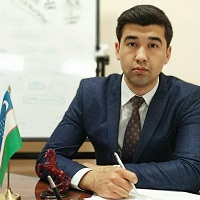
Sophie Triantaphillidou is a Professor in Imaging Science at the University of Westminster, UK, where she leads the Computational Vision and Imaging Technology research group. She studied Computer Science in Athens, Greece and later obtained a BSc in Imaging Science and a PhD (2001) in the field of Digital Image Quality, both from the University of Westminster. Her group’s research is interdisciplinary, exploring interrelationships between imaging system performance and image quality, image content, and image perception by human and machine vision systems.
She has developed, led and taught in several courses in imaging related fields; she is currently the module leader if the Final Year Project module in CSE department. She has led research collaborations with the Royal Photographic Society (RPS, UK), Nokia (Finland), Ministry of Defence (UK), Home Office (UK), Transport for London (UK), Huawei (China). She is the recipient of several research awards, including the Davies Medal for “significant contribution to digital imaging science”, awarded by the RPS.
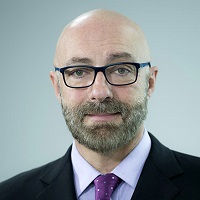
Tamas Kiss is a Professor of Distributed Computing at the School of Computer Science and Engineering and Director of the University Research Centre for Parallel Computing. Since 2020 he is an Editor in Chief at the Journal of Grid Computing published by Springer Nature. He holds a PhD in Distributed Computing, and MSc Degrees in Mathematics and Computer Science, and Electrical Engineering. The leading research outputs of his team (in collaboration with various research groups in Europe) in the past few years have been the MiCADO cloud orchestrator solution that enables the automated deployment and run-time management of microservices-based applications in heterogeneous cloud infrastructures, and the CloudSME and CloudiFacturing platforms that support manufacturing and engineering companies to utilise cloud-based high-performance computing services to run simulation and optimisation applications.
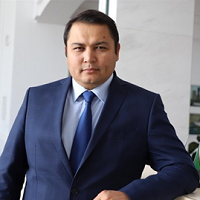
Odilbek Rustamovich Isakov was appointed as an advisor to the Minister of Finance, head of the new Department of Sovereign State, Corporate (Bank) Debt Obligations and State Debt of the Ministry of Finance of Uzbekistan. Odilbek Isakov is graduate of the University of World Economy and Diplomacy (Tashkent), Manchester Metropolitan University (BA in Business Economics, UK) and Strathclyde University (MSc in Finance, UK), holder of the international qualification of financial analyst CFA (Chartered Financial Analyst). For the last 12 years he worked at HSBC Bank in London, since March 2016 he has been the Director of the Debt Capital Market Clients Division. Nominated three times in the financial magazine Global Capital as "Most impressive global emerging markets origination banker" in 2014, 2015 and 2017. He is also a member of the Buyuk Kelajak Expert Council.
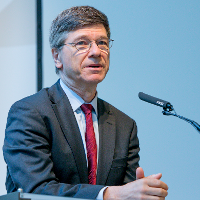
Dr. Jeffrey D. Sachs is a world-renowned economics professor, innovative educator, and global leader in sustainable development. He is widely recognized for bold and effective strategies to address complex challenges including debt crises, hyperinflations, the transition from central planning to market economies, the control of AIDS, malaria, and other diseases, the escape from extreme poverty, and the battle against human-induced climate change. Prior to joining Columbia University, Dr. Sachs spent over twenty years as a professor at Harvard University. He received his B.A., M.A., and Ph.D. degrees at Harvard.
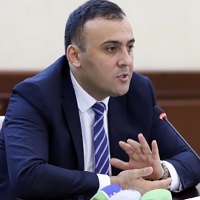
Sophie Triantaphillidou is a Professor in Imaging Science at the University of Westminster, UK, where she leads the Computational Vision and Imaging Technology research group. She studied Computer Science in Athens, Greece and later obtained a BSc in Imaging Science and a PhD (2001) in the field of Digital Image Quality, both from the University of Westminster. Her group’s research is interdisciplinary, exploring interrelationships between imaging system performance and image quality, image content, and image perception by human and machine vision systems.
She has developed, led and taught in several courses in imaging related fields; she is currently the module leader if the Final Year Project module in CSE department. She has led research collaborations with the Royal Photographic Society (RPS, UK), Nokia (Finland), Ministry of Defence (UK), Home Office (UK), Transport for London (UK), Huawei (China). She is the recipient of several research awards, including the Davies Medal for “significant contribution to digital imaging science”, awarded by the RPS.
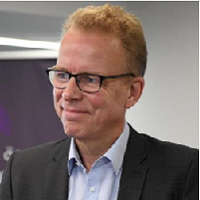
Mr. Gerd Trogemann is the Manager of the UNDP Regional Bureau for Europe and Central Asia Istanbul Regional Hub. Previously, Gerd has been the acting Director and Deputy Director of the Regional Service Centre for Africa in Addis Ababa, Ethiopia. He led the change management processes underpinning the relocation of the previous sub-regional office from South Africa to Ethiopia. Prior to this, he served as Director and Deputy Director for Resources Mobilization in New York as well as with the UNV in various programme and management functions. Before joining the UN, he headed the office of the Spokesperson for Development Policy of the Liberal Parliamentary Group in the German Parliament. Gerd studied in Germany, Vietnam, and the UK. He holds a master’s degree in Southeast Asia Studies, Law and Economics.

Johan Swinnen became IFPRI's director general in January 2020 and CGIAR's global director for systems transformation in May 2021. He is a member of the Champions Leadership Group (CLG) to Reduce Food Loss and Waste (SDG Target 12.3) and the Africa Europe Strategic Task Force on Sustainable Agriculture and Food Systems. Dr. Swinnen received his PhD from Cornell University and honorary doctorates from Göttingen University and Nitra Slovak University of Agriculture (Slovakia). He is a fellow of the Agricultural & Applied Economics Association and the European Association of Agricultural Economists. Agri-food policies, international development, political economy, institutional reform, trade and global value chains are among Dr. Swinnen's areas of expertise.
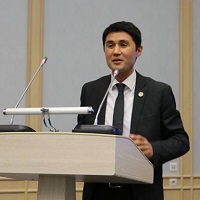
Akmal Burkhanov is the Director of the Anti-Corruption Agency of the Republic of Uzbekistan. Prior to this appointment, from January 2019, he led the Yuksalish National Movement (YNM). Akmal Burkhanov worked as the Executive Director at the Development Strategy Center, member of the Committee on Foreign Affairs and Inter-Parliamentary Relations of the Legislative Chamber, and a member of the Committee on Health Protection of Citizens of the Lower House of Parliament. He also worked in various positions in the Ministry of Justice. He was Executive Director of the Representative Office of Nagoya University (Japan) in Uzbekistan. He has teaching experience at the Presidential Academy of Public Administration. In 2007 he graduated from Nagoya University (Japan, master's program).

Charles Becker is interested in exploring the economies of such countries as Kazakhstan, India, sub-Saharan Africa, Russia, and Kyrgyzstan. His research has focused on economic demography, social security system forecasting, CGE modeling, mortality and disability risk, determinants of health care utilization, computable general equilibrium simulation modeling, and urban economics. His on-going projects involve assessing infant mortality rates, poverty in developing countries, accidental deaths in middle-income countries, and the performance of minority students in Economics doctoral programs. He recently worked with Irina Merkuryeva on a project investigating, “Disability Risk and Miraculous Recoveries in Russia,” and with Rebecca Anthopolos on, “Global Infant Mortality: Initial results from a cross-country infant mortality comparison project.” He also collaborated with Grigory Marchenko, Sabit Khakimzhanov, Ai-Gul Seitenova, and Vladimir Ivliev on a project entitled, “Social Security Reform in Transition Economies: Lessons from Kazakhstan,” and with Amitava Krishna Dutt and Jaime Ros on, “Urbanization and Rural-Urban Migration.”

Mr. Gerd Trogemann is the Manager of the UNDP Regional Bureau for Europe and Central Asia Istanbul Regional Hub. Previously, Gerd has been the acting Director and Deputy Director of the Regional Service Centre for Africa in Addis Ababa, Ethiopia. He led the change management processes underpinning the relocation of the previous sub-regional office from South Africa to Ethiopia. Prior to this, he served as Director and Deputy Director for Resources Mobilization in New York as well as with the UNV in various programme and management functions. Before joining the UN, he headed the office of the Spokesperson for Development Policy of the Liberal Parliamentary Group in the German Parliament. Gerd studied in Germany, Vietnam, and the UK. He holds a master’s degree in Southeast Asia Studies, Law and Economics.
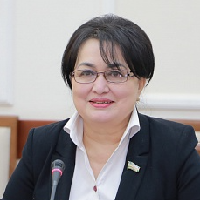
Fayzieva Dilorom Khusnitdinovna is the Chairman of the Committee of the Legislative Chamber of the Oliy Majlis of the Republic of Uzbekistan on international affairs and inter-parliamentary relations. She graduated from the Tashkent State Medical Institute in 1985. She holds doctorate degree in Hygiene and Epidemiology.
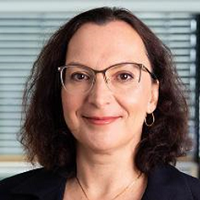
Tatiana Proskuryakova is the World Bank’s Regional Director for the Central Asia region that encompasses five countries: Kazakhstan, Kyrgyz Republic, Tajikistan, Turkmenistan, and Uzbekistan. Prior to this appointment, she served as the Country Manager for Romania and Hungary during 2017-2021, Country Manager in Bosnia and Herzegovina, and Montenegro based in Sarajevo since 2015, Country Manager in North Macedonia during 2013-2014, and Country Operations Adviser for Argentina, Paraguay and Uruguay during 2010-2013. Ms. Proskuryakova joined the World Bank in 1992 and throughout her career she has held various positions both in headquarters and in field offices, including in operations (in Europe and Central Asia Region and in Latin America and the Caribbean Region), portfolio management (in Latin America Department of Development Effectiveness), and corporate strategy (in Operational Policy and Country Services Vice Presidency). From 2003-2007, Ms. Proskuryakova was Senior Advisor representing the Russian Federation at the World Bank’s Board of Executive Directors.
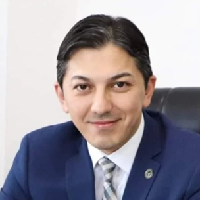
Otabek Nazirov is an Advisor to the Minister of Investments and Foreign Trade of the Republic of Uzbekistan, Chief Executive Officer of Uzbekistan Direct Investment Fund. Otabek Nazirov has graduated from the University of New York in the USA. He served in such financial and investment companies as Goldman Sachs Group, The Avascent Group, JPMorgan Chase in the US, Troika Dialog and MDM Bank in Russia. He was a senior regional banker in the industrial investment support department at the European Bank for Reconstruction and Development.
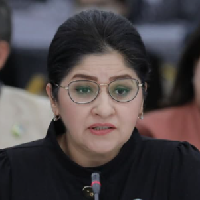
Malika Kadirkhanova, as the head of the Center for Women's Entrepreneurship in the Tashkent region, achieved great positive results in the development of entrepreneurship among women. The organization in the Tashkent region of the association of "Women-entrepreneurs with disabilities" is also the result of the efforts of Malika Akbarovna. In 2020 she was elected to the Senate of the Oliy Majlis of the Republic of Uzbekistan, as well as a member of the Senate Committee on Budget and Economic Reforms. In 2021, Malika Akbarovna was elected Chairman of the Senate Committee of the Oliy Majlis on Women and Gender Equality.

Dr. Richard Pomfret has been Professor of Economics at the University of Adelaide (Australia) since 1992. Before coming to Adelaide, he was Professor of Economics at the Johns Hopkins University School of Advanced International Studies in Washington DC, Bologna (Italy) and Nanjing (China). He previously worked at Concordia University in Montréal and the Institut für Weltwirtschaft at the University of Kiel in Germany. He has also held visiting positions at universities in Australia, Canada, China, France, Italy and the USA, and is an honorary Fellow of the Centre for Euro-Asian Studies at the University of Reading, UK, of Monash University European Centre, of the Centre for Social and Economic Research (CASE) in Warsaw, and of the research centre ROSES-CNRS at Université-Paris I. His research interests focus on economic development and international economics, and he has published over a hundred papers in these fields.
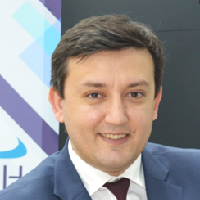
Bobur Mansurovich Bekmurodov is a deputy of the Legislative Chamber of the Oliy Majlis of the Republic of Uzbekistan, and chairman of the Yuksalish National Movement, since 2020. He graduated from the Uzbek State University of World Languages with a degree in translator-philology and from the Tashkent Financial Institute with a degree in economics. In 2018, he graduated from the John Smith Scholarship Program (UK). He served at UAC Bank Ipak Yuli, Center for Youth Initiatives "Kelajak Ovozi", Republican Center for Promotion of Youth Employment Corporate Development, founder of the joint venture LLC Mega Venture, Development Strategy Center, Mirzo-Ulugbek District Kengash, National Movement "Yukalish". He contributes to the promotion of good governance, building the capacity of the non-profit sector, and expanding the participation of local communities in governance. Since 2020, he is a member of the Committee on Democratic Institutions and Non-State Organizations and Self-Government Bodies of Citizens of the Legislative Chamber of the Oliy Majlis of the Republic of Uzbekistan; Executive Secretary of the Commission for the Management of Funds of the Public Fund for Support of Non-State Non-Commercial Organizations and Other Civil Society Institutions under the Oliy Majlis of the Republic of Uzbekistan; member of the National Council of the Republic of Uzbekistan on Combating Corruption, the Commission on Ensuring Gender Equality of the Republic of Uzbekistan.



